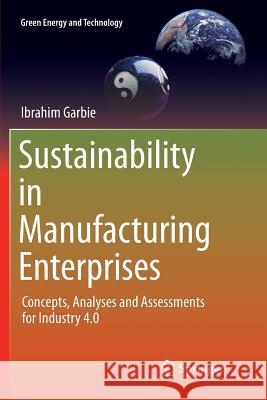Sustainability in Manufacturing Enterprises: Concepts, Analyses and Assessments for Industry 4.0 » książka
topmenu
Sustainability in Manufacturing Enterprises: Concepts, Analyses and Assessments for Industry 4.0
ISBN-13: 9783319805368 / Angielski / Miękka / 2018 / 248 str.
Kategorie:
Kategorie BISAC:
Wydawca:
Springer
Seria wydawnicza:
Język:
Angielski
ISBN-13:
9783319805368
Rok wydania:
2018
Wydanie:
Softcover Repri
Ilość stron:
248
Waga:
0.37 kg
Wymiary:
23.39 x 15.6 x 1.42
Oprawa:
Miękka
Wolumenów:
01
Dodatkowe informacje:
Wydanie ilustrowane











